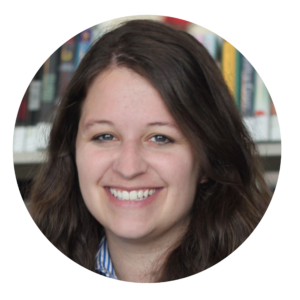Intellectual Freedom Fellowship
NCTE announces a new Intellectual Freedom Fellowship
2022 Intellectual Freedom Fellowship
Recipients: Ricki Ginsberg and Kyungae Chae

Ricki Ginsberg is associate professor and co-director of English education at Colorado State University. Her research interests include educational equity, particularly connected with literacy practices; teacher education; and the recruitment and retention of Indigenous teachers and teachers of color. Ginsberg is a former president of the Assembly on Literature for Adolescents of NCTE (ALAN); director of the Black, Indigenous, and Teachers of Color (BITOC) Collective at Colorado State University; chair of the Native American Advisory Council to the president of Colorado State University; a faculty affiliate for the Race and Intersectional Studies in Educational Equity (RISE) Center; and a former editor of the ALAN Review.
Ginsberg’s work has been published in journals including Research in the Teaching of English, Teachers College Record, Reading Research Quarterly, Journal of Adolescent Research, Multicultural Perspectives, Journal of Human Rights, English Journal, Voices from the Middle, and the ALAN Review. Her first book is co-edited with Dr. Wendy Glenn: Engaging with Multicultural YA Literature in the Secondary Classroom: Critical Approaches for Critical Educators (2019). Her second book is Challenging Traditional Classroom Spaces with YA Literature: Students in Community as Course Co-Designers (2022).
Kyungae Chae is a researcher with over 14 years of K-20 teaching experience. Her research focuses on comics, youth literature, and multicultural education. Her work has been published in journals including Multicultural Perspectives and the Journal of Adolescent and Adult Literacy. In her free time, Chae enjoys reading at the beach and admiring trees.
This award was given in 2022. The researchers received additional funding from NCTE to aid in the completion of their work. A white paper detailing the results was released in July 2025. Learn more here.
Award Details
Intellectual freedom, in spite of widespread public support, is being attacked by many factions seeking to ban or otherwise censor school reading material. Recognizing the likelihood of growing censorship challenges, NCTE augmented its decades of support for teachers beginning in January 2021. Along with many of its partners, NCTE addressed the rising tide of censorship in schools and school libraries in Freedom to Teach: Statement Against Banning Books. Through several fronts, including its Committee Against Censorship, NCTE continues to respond to this moment with a combination of leadership, advocacy, and direct support for teachers encountering challenges, while seeking to build on the strengths the organization brings to the defense of intellectual freedom.
NCTE’s announcement of the Intellectual Freedom Fellowship is an important step forward.
Purpose
The Intellectual Freedom Fellowship is designed to fund research, at any stage, on censorship in K–12 English language arts classrooms. In addition to engaging in research, the Fellow will participate in public communications and advocacy with NCTE to share the unfolding research and its implications for teachers and students in K–12 English language arts classrooms via multiple communication channels.
Eligibility
Researchers may submit only one research proposal. All members of the research team listed in the proposal must be members of NCTE at the time of proposal submission.
Criteria
- Relevance to K–12 ELA classrooms
- Relevance to the NCTE membership at large
- Demonstrated ability to disseminate progress and findings with the support of NCTE
- Quality of the research/research proposal
- Alignment with NCTE’s Mission and Vision and Diversity Statement, as well as the charge for the Standing Committee Against Censorship
Application Process
Applicants will propose a research project specifically focused on censorship of books and curricular materials within K–12 English language arts contexts. The research can involve work already underway or work that the Fellow needs support to begin.
Please submit the following materials via the form below :
- Current CV or résumé
- 750- to 1,000-word description of the research to be conducted, or in progress, including the identified gap in current practice, research question, methods, and proposed timelines. This proposal will undergo blind peer review.
- 400- to 500-word statement on the Fellow’s strengths as a communicator across multiple and varied channels. This statement could include discussion of scholarly and public writing, presentations for webinars, or participation in effective social media campaigns.
Fellowship Specifics
Stipend, Dates, and Responsibilities of the Fellow
- The Fellow will be paid a stipend of $2,500 to use to forward research about censorship in K–12 contexts,
- to be disbursed on December 1, 2022, and May 15, 2023.
- The Fellow is responsible for submitting a midpoint report by May 1, 2023, that outlines progress made on the research and plans for moving the research forward.
- The Fellow is responsible for communicating with NCTE and contributing essential information to guide a dissemination strategy that NCTE will manage.
Deliverables
The Fellow will develop three to five unique pieces or presentations. Possibilities include making presentations to NCTE affiliates; writing for or presenting to peer organizations; writing blog posts in NCTE-allied outlets; conducting social media engagements; and giving briefings to political representatives at the local, state, and/or national level, in concert with NCTE guidance.
The recipient of the fellowship was notified in November 2022, and the year of the fellowship will conclude in November 2023.
